- Teacher: Dennis Kirimojo
- Teacher: Nancy Oloo
denkiri.gnomio.com
-
-
This unit specifies the competencies required to install water supply and systems. It involves preparing working drawings, identifying materials, quantifying and costing, identifying and using pipework tools and equipment, installing pipe works, designing simple pipework and install water distribution system. It applies in the construction industry.
-
Isometric plumbing drawing.
It is a drawing with details representing pipes, fittings, and fixtures at a 45° angle, in plain terms it’s the plumbing drawing scheme. The goal is to represent three-dimensional designs on two- dimensional drawingsFigure 122: isometric drawing
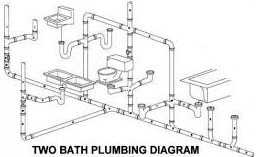
Features of Piping Isometric Drawing
It is not drawn to the scale, but it is proportionate with exact dimensions represented. Pipes are drawn with a single line irrespective of the line sizes, as well as the other configurations such as reducers, flanges, and valves. pipes are shown in the same size.
DRAWING SYMBOLS
Because of the small scale used in most drawings, standard graphic symbols are used to
present complete information concerning construction items and materials. These typ ical symbols are used so frequently in construction drawings that their meanings must be familiar not only to the preparer, but to the user as well.
Plumbing symbols
Symbol is a form of a sign that may have deep meaning.
Plumbing symbols are used when drawing house plans and diagrams. The purpose of these symbols is to indicate where the different elements of your plumbing system are located.Plumbing symbols.
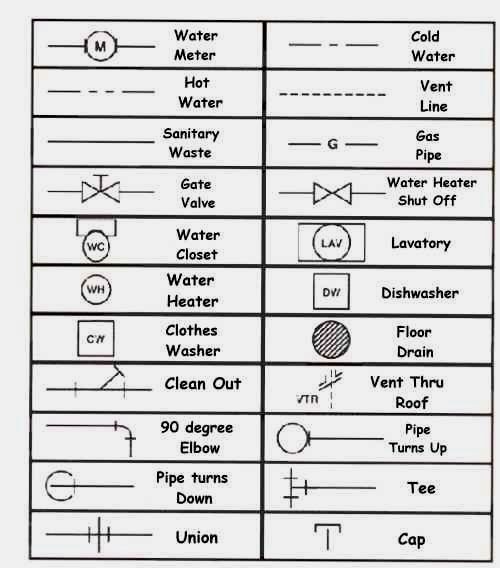
Floor plan
A floor plan is a drawing to scale, showing a view from above, of the relationships between rooms, spaces, traffic patterns, and other physical features at one level of a structure.
Dimensions are usually drawn between the walls to specify room sizes and wall lengths. Floor plans may also include details of fixtures like sinks, water heaters, furnaces, etc. Floor plans may include notes for construction to specify finishes, construction methods, or symbols for electrical items.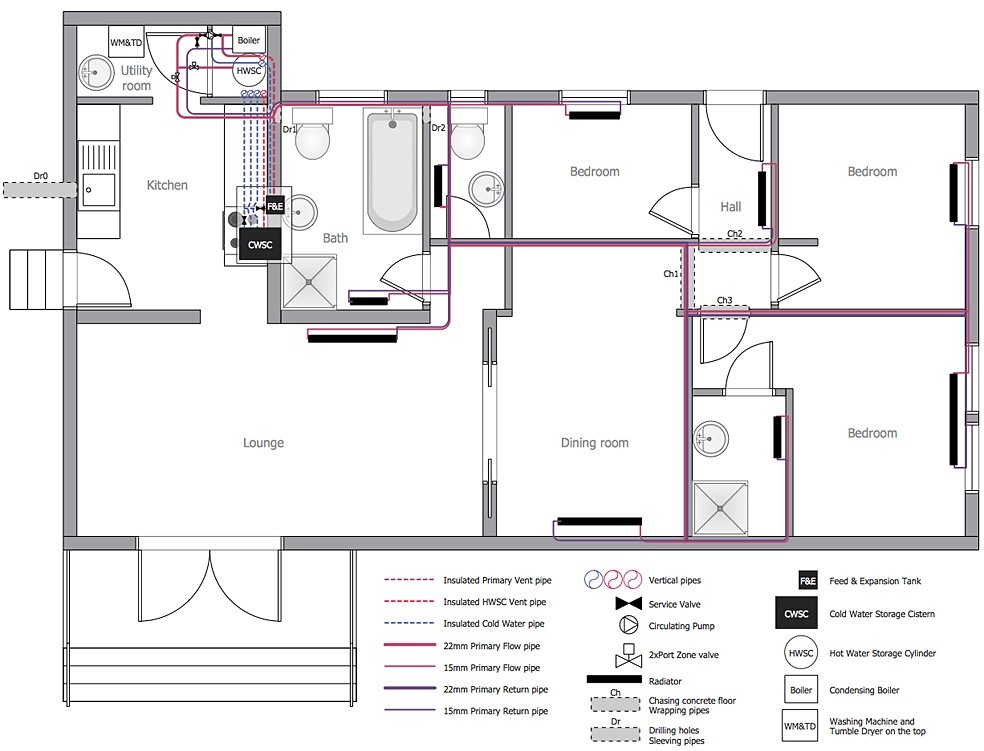
Features of Piping Isometric Drawing
It is not drawn to the scale, but it is proportionate with exact dimensions represented. Pipes are drawn with a single line irrespective of the line sizes, as well as the other configurations such as reducers, flanges, and valves. pipes are shown in the same size. -
What is a plumbing layout?
Drawing symbols are very crucial in every drawing, state their purpose.
What is the purpose of scales in drawings?
Define metric measurement giving examples.
List four types of drawings a plumber shall encounter in the site while installing sanitary appliance. -
Pipe materials and supplies Pipe Material Selection
Pipe exteriors must be able to withstand demanding surrounding conditions, such as high and ambient temperatures, different levels of humidity, and some degree of wear. Due to these conditions, it is essential to consider the type of fluid contained within the system, the internal temperatures, and the internal pressure.
Therefore, careful consideration should be given to the material. There are a number of factors that should be considered before choosing the plumbing materials:Corrosive water
Problems such as corrosive water can cause damage to the system, which is made of metal. Repeated failures of the plumbing system can cause the system to last for only a couple of years. To choose the right material, check the quality of water with local department or installer. You should know how the system gets affected by the quality of the plumbing materials.
Certain types of pipes are corroded easily, resulting in contamination. Plumbing materials such as PEX do not tend to corrode and maintains the quality of the water.Water pressure
Choose the materials that perform well under high water pressure. PVC pipes vary in thickness depending on the location they are used. Plastic products are designed for applications with high pressure.Water flow
For low operating cost and better water flow, the surface of pipes should be smooth. Brass piping provides long lasting benefits that does not rust the interior and maintains the smoothness inside the pipe.
Heat & temperature
There are some plumbing materials that cannot withstand high temperature e.g pvc pipes. Hence, one should choose the material that tolerates high temperature. Pipes that carry hot water need to be protected so that the heat loss is nominal. Different materials with insulating properties are used to carry hot water.
Sunlight
The UV rays from the sun can deteriorate the quality of plastic pipes. A number of factors like how deep it is, where it is being installed, rate of flow etc. determine the life of plastic piping. In other words, exposed pipes need a lot of attention and maintenance.(i.e,a ppr and G.I pipe can withstand exposure to sunlight)
Characteristics of material
There are different types of materials such as Copper, PVC, PEX, and CPVC etc. that are used depending upon their application. There are some other plumbing pipes that include – brass,
galvanized iron and black mild steel pipe. The ability of a pipe to take stress is evaluated on the type of application.GALVANISED Iron pipes are also used to carry water.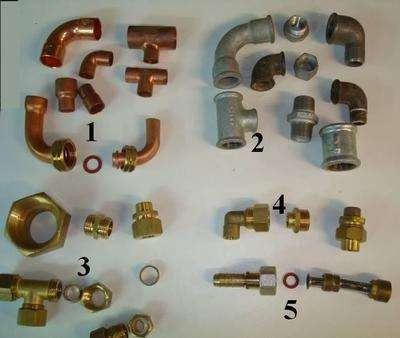
Figure 124: Plumbing Material
Common Pipe MaterialsThe most common types of plumbing piping materials are:
Cast iron for plumbing waste lines
PVC (PolyVinyl Chloride) for plumbing waste lines
Chromed brass for plumbing waste lines
Chromed copper for water supply lines
Galvanized iron for water supply lines
Copper (rigid and flexible) for water supply lines
CPVC (Chlorinated Poly-Vinyl Chloride) for water supply lines
PEX (Cross-linked Polyethylene) for water supply lines
Black iron for gas pipe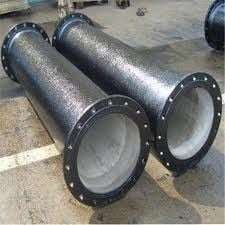
-
 (You can
(You can